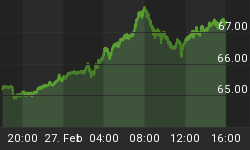The Fed is trying to consolidate its power base
March 27 (Bloomberg) -- America's financial system faces its biggest overhaul since the Great Depression as officials weigh lessons from the credit-market rout and the near collapse of Bear Stearns Cos.
Federal Reserve policy makers are redefining which companies are vital to the flow of credit, an area once the sole domain of commercial banks, and which institutions pose risks to the entire economy if they fail. Treasury Secretary Henry Paulson said in a speech yesterday that the Fed should broaden its oversight to include Wall Street investment firms, now regulated by the Securities and Exchange Commission.
Former regulators predict the changes will see the Fed accrue influence at the expense of the SEC, which was created by President Franklin Roosevelt to make rules for dealers and stock exchanges. The Fed is taking almost $30 billion in assets off Bear Stearns's balance sheet to encourage JPMorgan Chase & Co. to buy the firm, even though Bear's main supervisor is the SEC.
"This is tectonic," said Ralph Ferrara, a former general counsel at the SEC, and now a partner at Dewey & LeBoeuf LLP in Washington. "We no longer want to have a balkanized response to a national crisis."
My Thoughts:
The Federal Reserve, a private banking institution authorized by Congress to loan money created from nothing and charge interest for doing so, is already a powerful, rouge institution that operates without Congressional oversight. Should we now hand them more power?
The Fed's latest "unprecedented" act of lending of money directly to investment banks (swapping treasuries for valueless garbage) and their recent creation of the a) Term Auction Facility b) Term Securities Facility and c) Primary Dealer Credit Facility are all confirmation as to where their loyalties lie (not the people) -- and their mischievous, manipulative, rouge ways of supporting their brethren.
Additionally, the bailout of a private company (Bear Stearns) with US taxpayer money, without Congress's approval, is unfathomable -- Who is in control of these guys (shareholders? -- see my note towards bottom of post)
So, the question of the day: does the dog (our government) wag the tail (fed) or does the tail (fed) wag the dog (government)? I think the answer is crystal clear...
If the American people ever allow private banks to control the issue of their currency, first by inflation, then by deflation,(i.e., the "business cycle") the banks and corporations that will grow up around them will deprive the people of all property until their children wake-up homeless on the continent their fathers conquered.
Thomas Jefferson, President of the United States 1801-1809
I believe that banking institutions are more dangerous to our liberties than standing armies.
Thomas Jefferson,1816
We have come to be one of the worst ruled, one of the most completely controlled and dominated, governments in the civilized world - no longer a government by free opinion,no longer a government by conviction and the vote of the majority, but a government by the opinion and the duress of small groups of dominant men.
Woodrow Wilson, President of the United States 1913-1921
(Note: Federal Reserve's controlling stock is owned by: Rothschild Banks of London and Berlin, Lazard Brothers Bank of Paris, Israel Moses Sieff Banks of Italy, Warburg Bank of Hamburg and Amsterdam, Lehman Brothers Bank of New York, Kuhn Loeb Bank of New York, Chase Manhattan Bank of New York and Goldman Sachs Bank of New York)
I think Dr. Schoon said it best in his latest, must read article: The Die Is Cast The Cast Will Die
"The banker's credit money system is now everywhere as are their resultant unsustainable debts; and those who profit by that system, the bankers (and the corporations that grew up around them) now control the media, the political process, and the agencies charged with overseeing and regulating the economy - the US Federal Reserve Bank, the SEC, the US Treasury, and indeed the US government itself: the Presidency, the Congress, and the Supreme Court."















